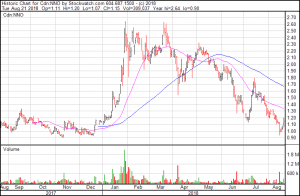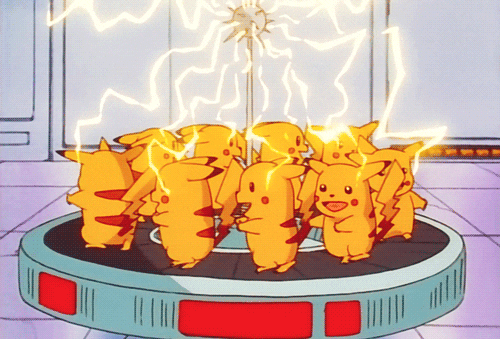Nano One (TSXV:NNO) has announced the launch of a new research project, made possible by an injection of funding from the Canadian government.
The National Research Council of Canada Industrial Research Assistance Program (NRC IRAP) will contribute up to $349,000 of non-dilutive funding to aid in the development of Nano One’s coatings for high durability lithium-ion battery cathodes.
“NRC IRAP has been a strong supporter of Nano One since 2014 and we are honoured to embark on our fourth project with them…The work will be directed to improving lithium ion cathode durability and stability, and it will build on the success of our NRC IRAP High Voltage Spinel project and leverage resulting patent applications.” – Nano One Materials CEO Dan Blondal
Funding for the project from IRAP began in August and will extend through the end of May in 2020.
The company is also receiving financial support from other Government of Canada initiatives, namely Sustainable Development Technology Canada, and the Automotive Supplier Innovation Program, which are projected to extend Nano One’s operating capital into Q1 2020, according to the company.
Nano One’s chart performance

Equity Guru’s Lukas Kane best summarized Nano One’s volatile stock price in his July piece:
Legitimate question: “What the fo’ is going on with NNO share price?”
Background: we’ve written 30 articles on NNO including: locking down IP, partnering, CEO podcasts, collaborators, wealth creation, innovation, Chinese delegation, technology moats etc.
We have an almost fetishistic obsession with this battery tech company. But as we have demonstrated many times, if we think it’s time to sell, we’ll tell you.
Straight Up Answer: “There is no material evidence that explains this stunning drop in share price”.
We talked today with the President of NNO, John Lando, who confirmed that the market is impatient for NNO to announce a “more clear engagement” with the battery makers and that he “fully expects this to happen”.
Lando stressed that the “sales cycles in this industry are slow”. Building a cathode factory isn’t going to be a snap decision for any battery company.
The limits of Li-ion
Lithium-ion batteries, while emission-free, are still far from perfect. In his doctoral thesis discussing the limits of EV battery technology, “Durability Aspects of Fast Charging, Mechanical Constraint, and Inhomogeneity in Lithium-Ion Batteries,” Abdilbari Shifa Mussa writes that lithium-ion batteries have several flaws.
Where the issue of durability arises for electric vehicle (EV) users, for example, is during the refueling stage, according to Mussa. While charging stations can require hours to fully charge a battery, a trip to the gas-station can take just a few minutes if conditions allow.
It’s because of this vast difference in refueling times that ‘fast charge’ systems have become more popular, with some requiring 10-20 minutes to fully charge a battery. However, even though fast-charging can shorten the battery charging time, “it may accelerate battery degradation,” Mussa writes.
Beyond product lifespan, there are also issues of rechargeable EV batteries’ potential environmental impact and cases of them even catching fire.
Nano One hopes to iron-out these problems.
Building a better battery
Improving cathode technology is the surest way to boost lithium-ion battery safety, performance and energy density, the amount of energy a battery can store, according to the company.
Besides decreasing battery degradation and charge times, Nano One is working on different cathode recipes to decrease costs. Cobalt, a key component in cathodes, is predominantly sourced from the conflict-stricken Democratic Republic of Congo where supply can be volatile and even produced through child-slavery.
Because of this, Nano One has developed numerous types of batteries, including experimental nickel and manganese-dominant cathodes which are more easily and ethically sourced, and has even experimented with moving towards a cobalt-free battery.
With Global sales of emissions-free vehicles expected to reach 1.6 million this year and to an estimated 2 million in 2019, Nano One is hoping to satisfy a burgeoning market for EV batteries. The company is sure to make the most of their allotted government funding, but time will tell what comes of their research.
— Ethan Reyes
Full Disclosure: NNO is an Equity Guru marketing client and we own stock.


